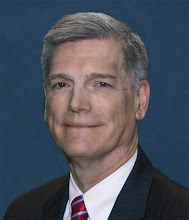 Today's Washington Post presents an op-ed by Timothy Searchinger titled, "How Biofuels Contribute to the Food Crisis". His main point is that the portion of crops devoted to biofuels has grown more rapidly than agricultural production in recent years. As a result, any stress on food production, e.g., drought in China or floods in Australia, leads to shortages or inflation in food for humans. Additionally, rapid economic development in China and elsewhere is increasing demand for meat, further stressing the world agricultural system and increasing the demand for water and energy.
Today's Washington Post presents an op-ed by Timothy Searchinger titled, "How Biofuels Contribute to the Food Crisis". His main point is that the portion of crops devoted to biofuels has grown more rapidly than agricultural production in recent years. As a result, any stress on food production, e.g., drought in China or floods in Australia, leads to shortages or inflation in food for humans. Additionally, rapid economic development in China and elsewhere is increasing demand for meat, further stressing the world agricultural system and increasing the demand for water and energy.Mr. Searchinger offers a hopeful outlook that the competition between food and energy production can be resolved through adjustments in policy and market responses. From our perspective, his article highlights the beauty of getting energy from a rock (uranium), and gives us another reason why China has 13 operating nuclear power plants and more than 25 under construction. The choice needn't be food versus energy; it can be food and energy.
Pictured: Uranium ore, USGS photo.

Comments
US farmers are very productive with the ability to saturate the world food supply. Processing some of the energy out corn or soy animal feed is a food and energy option while critics want to frame the debate as a food or energy choice. Much in the same way nuke critics want to debate energy or safety, instead of energy and safety.
And if the US builds several hundred nuclear power plants over the next 20 to 30 years dedicated towards producing hydrogen, the waste carbon dioxide (80%) from urban and rural biowaste combined with that hydrogen could produce enough carbon neutral fuel (gasoline, methanol, diesel fuel, jet fuel, dimethyl ether) to completely replace the use of fossil fuels for transportation in America.
There's no logical reason why America can't become-- completely- free from the fossil fuel economy within the next 20 to 30 years through the mass production of nuclear power plants and the utilization of urban and rural biowaste.
Several hundred in the next 30 years? Have any independent analyses (not counting Lyndon Larouche) suggested this is even feasible?
I don't know. I'm pretty sure the plants won't be built, partly because these days, nine out of ten people wring their hands and call for studies, leaving one in ten to actually do something useful. It used to be the other way 'round. Decline of the West.